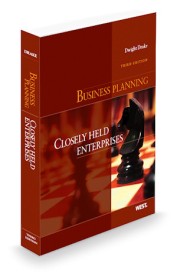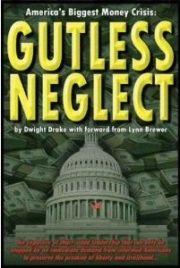Romney’s done it. He’s the first non-incumbent Republican presidential candidate to win both Iowa and New Hampshire. Beyond making him the odds-on favorite for the Republican nomination, this feat has made him enemy number one for a few of the big-name, big-ego Republican hopefuls who’ve been thoroughly trounced. Texas Governor Rick Perry now calls Romney a “vulture” whenever he can find a microphone. Newt Gingrich, whose high ride in the polls collapsed just a few weeks ago, describes Romney as a “looter of companies.”
So much for Reagan’s eleventh commandment, “Don’t speak ill of your fellow Republicans.” Perry and Gingrich are now embarrassing themselves, coming off as second-rate, career political hacks who are consumed with jealously and revenge and a compulsive desire to get attention. But they’re also hurting Romney, something they so badly want to do.
The core of these attacks is Romney’s career at Bain Capital, the centerpiece of Romney’s campaign. Romney claims that his private sector experience of working to turn around and build companies uniquely qualifies him as the best candidate to tackle our nation’s ugly financial mess, open up new markets for American businesses, and put many Americans back to work. And given the depth of our daunting financial mess and the backgrounds of Romney’s competition – four career politicians and a player who grew up in his dad’s company – it’s little wonder that his message has worked. The results confirm that, in the minds of many, the strength of Romney’s Bain message now trumps the warts that have always plagued Romney – an inconsistent record on social issues, a Massachusetts Romneycare plan that looks too much like Obamacare, a religion that many evangelists despise, and an inability to generate any giddy passion from voters. And, for that very reason, these Bain Capital allegations are dead serious. If in fact there is any substantial truth in them, the core pillar of Romney’s candidacy could crumple.
But the significance of the attacks reaches beyond the risks to Romney’s political fortunes. They go right to the heart of his fitness to serve as President. The essence of the allegations is not incompetence or bad judgment. The attacks are about character. Perry has no problem calling Romney “unethical” and claiming that he is unfit to lead the nation. And the Gingrich clowns fabricate facts to make Romney out to be downright evil. One can only imagine what the hard left has in store for Romney. So, on this one, the bottom line truth is all-important. Are these allegations by Romney’s “colleagues” just another example of gross, politically-motivated intellectual dishonestly? Or was Romney really a bad guy at Bain Capital?
Bain’s history is not an open book – nothing like a public company. It’s a private investment firm that primarily invested in private companies. But real facts about Romney’s Bain experience are now showing up and likely will continue to surface as the candidates take their circus to South Carolina. And the more I read about Romney’s leadership at Bain, the more I am convinced that the truth (if smartly revealed) could set Romney free to actually strengthen his message.
Sure Bain had to grapple with many rough situations and make tough calls to lean out ailing businesses in hopes of saving the businesses and delivering for its investors. And as is always the case when a business is on the ropes, many with a vested interest in the status quo end up disappointed. But did Romney excel at his job – a job that required the ability to analyze and execute in challenging business situations? No doubt about it. Was Romney a straight shooter? Sure appears so. And as for what it takes to analyze markets and grow businesses, the Bain stuff really does suggest that Romney’s experiences have put him in a league that his career-politician cronies can’t even comprehend.
There is no doubt that, under Romney’s leadership, Bain itself flourished as a company, delivered big for its investors, and did so by wrestling hard to build (not destroy) companies that it targeted for investment. Perry, Gingrich and many others may not understand or appreciate the role and importance of private equity investing and definitely want to perpetuate some false, twisted notion that Romney had a duty to create and maintain jobs that made no economic sense. But what’s clear is that Romney did help many companies grow and, in the process, earned the reputation of a highly respected, honorable CEO of one of the absolute best private equity firms. And as hard as many might try, there does not appear to be any rational basis for likening Bain’s business activities under Romney’s leadership to the Wall Street shenanigans and abuses that lead to the bailouts and the garbage that nearly all have come to despise.
But, like so many, I am still trying to sort out hard facts about Bain as they surface. The details are important because I suspect this issue will occupy a big piece of center stage for the next ten months. In my next post, I’ll summarize what I’ve learned. Stay tuned.

 January 12, 2012
January 12, 2012 




Comments are closed.